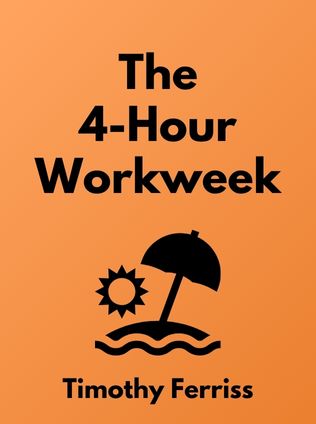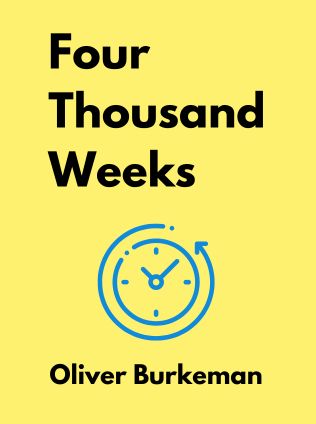
Rework
By Jason Fried and David Heinemeier Hansson
Published 11/2010
About the Author
Jason Fried and David Heinemeier Hansson are two remarkable figures in the world of business. They are the co-founders of 37signals, a company that has become synonymous with innovative and effective project management tools. However, their influence extends far beyond software development; they are also thought leaders who have challenged conventional business wisdom with their groundbreaking book, Rework. Fried and Hansson's entrepreneurial journey is a testament to their philosophy that less is often more. They have built a successful company by embracing simplicity and rejecting the unnecessary complexities that often bog down businesses.
Jason Fried, with his keen insights into productivity and simplicity, and David Heinemeier Hansson, known for his creation of the Ruby on Rails framework, together represent a new breed of entrepreneurs who prioritize efficiency and effectiveness over sheer growth. Their book, Rework, encapsulates their experiences and beliefs, offering a roadmap for anyone looking to start or run a business in the modern era.
Main Idea
At the heart of Rework is a simple yet profound message: traditional business practices are often outdated and counterproductive. Fried and Hansson argue that success in today’s business world doesn't come from following old rules, which are typically resource-intensive, rigid, and overly complex. Instead, they advocate for a more streamlined, flexible approach that focuses on what truly matters—creating value, staying agile, and keeping things simple.
The book systematically debunks several myths that have long been accepted as truths in the business world. It challenges the notion that you need to work excessive hours, draft elaborate business plans, or secure external funding to succeed. Fried and Hansson propose that by focusing on the essentials, cutting out the unnecessary, and being willing to challenge the status quo, entrepreneurs can build successful, sustainable businesses that are not only profitable but also fulfilling.
Table of Contents
- Ignore Old-School Business Myths
- Start Your Business
- Do More With Less
- Keep Moving Forward
- Make Decisions—Don’t Sit on Them
- Keep Focused on the Core of Your Business
- Maintain Your Momentum
- Build Uninterrupted Work Time Into Every Day
- Don’t Waste Time in Meetings
- Ignore the Competition
- Be Prudent About Upgrades
- Promote Your Product on the Cheap
- Shun the Press Release
- Choose Small Media Over Large
- Add to Your Team (or Don’t)
- Don’t Hire Until You’ve Done the Job
- Manage Your Reputation
- Handle Your Customers With Care
- Help Your Employees Thrive
- Create a Workplace Where Everyone Can Flourish
- Communicate Simply and Clearly
Ignore Old-School Business Myths
The business world is full of myths—ideas that have been passed down over generations, but which no longer hold true in today’s fast-paced, digital-driven environment. Fried and Hansson start Rework by dismantling some of these myths, urging readers to reconsider what they think they know about running a business.
One of the first myths they tackle is the idea that bigger is always better. Many entrepreneurs are taught to believe that growth should be the ultimate goal, but Fried and Hansson argue that growth for its own sake can be dangerous. They suggest that instead of striving for size, businesses should focus on finding the right size—the size that allows them to operate efficiently and profitably without unnecessary overhead.
"Your one-person company may be far more profitable than someone else's 100-person company." - Jason Fried and David Heinemeier Hansson
This quote encapsulates their belief that a smaller, leaner company can often outmaneuver larger competitors by being more agile and focused. The authors also challenge the glorification of workaholism. In many traditional business environments, long hours and sacrifice are seen as badges of honor, but Fried and Hansson argue that this mindset is misguided. They assert that productivity isn’t about how much time you spend working, but about how smartly you use that time.
They encourage entrepreneurs to reject the notion that more hours equal more success. Instead, they advocate for a work-life balance that prioritizes efficiency over sheer effort. This idea is particularly relevant in today’s world, where burnout and stress are becoming increasingly common among workers who feel pressured to constantly be "on."
Start Your Business
The next major theme in Rework is the idea that there is no perfect time to start a business. Fried and Hansson urge readers to take action now, rather than waiting for the stars to align. They argue that waiting for the perfect conditions—whether it’s more money, more experience, or more time—can lead to endless delays and missed opportunities.
Instead of getting caught up in planning and preparing, the authors suggest that aspiring entrepreneurs should just start. They believe that the best way to learn is by doing, and that many of the obstacles people fear are less daunting than they seem once you begin. This philosophy is reflected in their own journey with 37signals, where they started small, learned as they went, and adapted to challenges as they arose.
They also emphasize the importance of creating products that solve real problems. Rather than trying to appeal to everyone or chase the latest trends, Fried and Hansson recommend focusing on making something that is meaningful and useful to a specific group of people. They give the example of James Dyson, who created his revolutionary vacuum cleaner because he was frustrated with the existing options on the market. By solving his own problem, Dyson created a product that resonated with millions of others.
Do More With Less
A central tenet of Fried and Hansson’s philosophy is that constraints can be a source of strength, not weakness. In Rework, they argue that having limited resources forces you to be more creative and efficient, which can lead to better results. This idea runs counter to the traditional belief that you need a lot of money, time, and resources to succeed in business.
Instead of viewing constraints as obstacles, Fried and Hansson see them as opportunities to innovate. They advise entrepreneurs to embrace their limitations and find ways to work within them. This could mean starting with a minimal viable product, using existing resources creatively, or finding low-cost ways to market your business.
One of the most important aspects of this approach is avoiding debt and outside funding. Fried and Hansson caution against taking on investors or loans, which can lead to a loss of control over your business. They argue that self-funding, or bootstrapping, forces you to be more disciplined and focused, which ultimately leads to a stronger, more sustainable business.
"Don’t fall into the trap of seeking outside funding or borrowing a pile of cash to start your business." - Jason Fried and David Heinemeier Hansson
This quote highlights their belief that starting small and scaling organically is often a more effective and less risky approach than trying to go big from the beginning. By doing more with less, you retain control over your business and avoid the pitfalls that can come with external funding, such as pressure to grow too quickly or make decisions that prioritize short-term gains over long-term success.
Sign up for FREE and get access to 1,400+ books summaries.
You May Also Like
The Life-Changing Magic of Tidying Up
The Japanese Art of Decluttering and Organizing
By Marie KondoThe Lean Startup
How Today's Entrepreneurs Use Continuous Innovation to Create Radically Successful Businesses
By Eric RiesWho Moved My Cheese?
An Amazing Way to Deal with Change in Your Work and in Your Life
By Spencer Johnson, M.D.Make Your Bed
Little Things That Can Change Your Life...And Maybe the World
By William H. McRaven



















